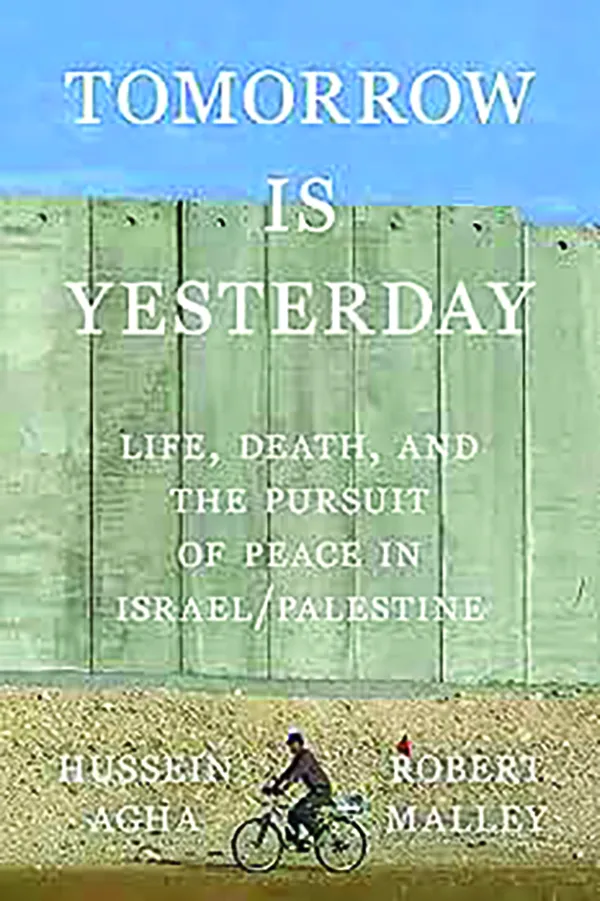Every year, thousands of young people move to Washington, D.C., hoping to reach a trusted position like the one enjoyed by Robert Malley, the favorite Iran whisperer of the Obama and Biden administrations. That is, he enjoyed such a position before he was found to have hired at least two members of an Iranian influence operation and had his security clearance revoked. It was never made totally clear to the public in detail exactly what happened that caused Malley, formerly placed in a position of great trust in the U.S. government, to fall from grace, seemingly because it would have been politically painful for the Biden administration to admit why it needed to remove his clearances. So rather than facing prosecution when he was revealed to have mishandled classified information or being ruled out in the first place for maintaining inappropriate relationships with Iranian officials — in other words, to have cozied up to a hostile foreign government that describes America as “the Great Satan” — Malley was treated with kid gloves. Concerns about Malley’s “potential embarrassment” were cited as the whole affair was swept under the rug.
This all makes it especially galling that, in a new book co-authored by Malley and Hussein Agha, Tomorrow Is Yesterday: Life, Death, and the Pursuit of Peace in Israel/Palestine, Malley sniffs that, among the slights he incurred allegedly because of his unorthodox views, he “joined the Biden administration as special envoy for Iran to serve a president whose worldview he did not share, work on a task — a return to the nuclear deal — to which his superiors were not fully committed, and end up investigated for reasons about which he was told little, stripped of his security clearance, and forced to step aside.” A man protected from his own failures is posing as a man who was wronged.
So, what should be made of this book? Agha and Malley have each worked on Israel-Palestine matters for decades, Agha as a representative of or adviser to the Palestine Liberation Organization’s leadership and Malley as a Democratic appointee. Normally, even compromised insiders have irreplaceable and valuable insights, but it is not clear that either of these authors does. Agha recalls some vivid anecdotes about Yasser Arafat, but both Agha and Malley acknowledge that the Palestinian leader lied constantly, so it is not clear how revealing any of those stories actually are.

However, the book reveals where the anti-Israel wing of the Democratic Party is heading. Among the unorthodox views Agha and Malley share is that their life’s work, the peace process between Israel and the Palestinians, has failed. As they see it, “peacemakers focused on repressing history by arbitrarily choosing a starting point and defining the conflict as a territorial spat,” which “did not reflect the reality, feelings, and yearnings” of either side. They believe that this failure led to the war that Hamas started on Oct. 7. Israel and the Palestinian people have effectively returned to the time before the Oslo Accords, hence the title of the book.
This places the authors at odds with at least the outward pronouncements of the global diplomatic community. The United Nations recently voted on yet another resolution about the Israel-Palestinian conflict during its general assembly, an annual gabfest. U.N. Secretary-General António Guterres solemnly intoned that “the central question for Middle East peace is implementation of the two-state solution,” and the delegates in New York applauded, but the resolution mostly drew shrugs elsewhere. In Tomorrow Is Yesterday, Agha and Malley argue that “the era of the peace process, of the two-state solution, has vanished” and that “Israelis and Palestinians are back where they were decades ago.”
At a very basic level, they are correct. Starting with the Oslo Accords, negotiators found partial resolutions to the simpler problems in the conflict, hoping that the process of negotiations would create momentum toward a final settlement. However, because none of the core issues were settled, the high-profile summits such as the one in 2000 between Arafat and former Israeli Prime Minister Ehud Barak at Camp David inevitably ended in failure. As Malley and Agha point out, “for Israel to accept the Palestinian historical narrative would have turned it into the perpetrator of a horrendous crime … for Palestinians to concur with Israel’s version would have made their national struggle a tragic, bloody mistake.” American attempts to paper over this disagreement at the heart of the dispute fell flat.
Agha and Malley are deeply immersed in the secular variants of Palestinian nationalism, and their analysis inadvertently hits the mark. They write that, “the mainstream Palestinian national movement had fed on heroism.” The “heroes” they list include “Abu Yusuf” and Kamal Adwan, some of the planners of the 1972 Munich massacre, and “Abu Jihad,” who planned the coastal road massacre that was the bloodiest Palestinian terrorist attack before Oct. 7. If Palestinian identity depends on opposing Jewish self-determination, or Zionism, then evidently murdering children and other civilians is heroic. Hence, as they write, “October 7 was Palestinian to the core.”

Israelis are not the only targets of Palestinian “resistance,” as recounted in the book. Arafat struggled mightily to keep his movement from being co-opted by other Arabs, including the Egyptians and Jordanians who occupied Gaza and the West Bank, respectively, when the PLO was founded. The Palestinians dislike Americans too, and “the two-state solution’s legitimacy was further eroded by the West’s suffocating embrace — a bear hug made worse for its being American.”
Their descriptions of the central forces in the conflict, Hamas and Israel, are puzzling. Their attempts to describe the Israelis’ motivations tend to fall flat once they get beyond “security” and “normalcy.” For example, few Israelis yearn for “absolution” from whatever crimes the Palestinians accuse them of committing. The authors repeatedly refer to Arab Israelis as “Palestinian citizens of Israel,” even though the Arab Israelis firmly oppose becoming Palestinians.
The descriptions of Hamas are even further off the mark. The Muslim Brotherhood mostly focused on Islamizing Palestinian society before it launched its spin-off, Hamas. So the authors imagine that Hamas could provide more durable, temporary ceasefires than the PLO. Evidently, neither of them has picked up a newspaper since Hamas seized control of Gaza in 2007. They claim that “Israel could have found ways to postpone the operation [the genocidal attack on Oct. 7] and then postpone it some more” by appeasing Hamas. For example, “had an understanding been reached that enabled Hamas’s successful governance and put it in a dominant position toward Fatah [the bulk of the PLO], the Islamists might well have signed off.” This is fanciful at best. The next “dominant position” Hamas might have accepted would be over Jerusalem, and then Tel Aviv.
In addition to its analytical shortcomings, Tomorrow is Yesterday suffers from some basic errors of fact. Israeli Prime Minister Benjamin Netanyahu did not invite himself to Congress; former House Speaker John Boehner did. The Clinton, Obama, and Biden administrations were not “successive U.S. administrations,” they were successive Democratic administrations. The Oslo process was not “foreign,” it was bilaterally negotiated by the Israelis and Palestinians to get out of the misbegotten American-led Madrid multilateral process. The division in northern Ireland is not between “Christians and Protestants,” but between Catholics and Protestants.
DOUGLAS MURRAY ON A MATTER OF LIFE VS. DEATH
These would be embarrassing enough, but they also undermine the authors’ pose as the only honest men amid a sea of liars. Naturally, they claim that the Americans are the worst offenders. According to Malley and Agha, after Oct. 7, “America’s falsehoods were most startling because least necessary.” Presenting “Hamas’s attack as disconnected from history, the expression of ‘unadulterated evil,’ the work of ‘animals’” is allegedly one such falsehood. On a technicality, they are correct: animals do not roll grenades into shelters or set mothers and their children on fire. Only people like Hamas do that.
Tomorrow is Yesterday correctly points out that the gulf between the Israelis and Palestinians will not be bridged by the existing peace process, and that any attempt at peace must be built on a new foundation. They want the United States to pressure Israel to give the Palestinians better offers. But after reading what is supposed to be a sympathetic account of the Palestinian plight, the most important remaining question is, why?
Mike Watson is a fellow and deputy director of the Hudson Institute’s Center for Strategy and American Statecraft.














